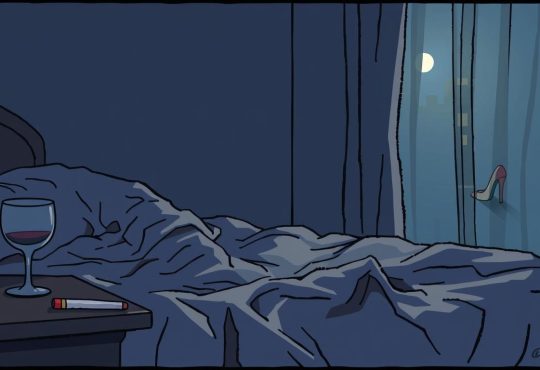
Have you ever noticed subtle changes in your partner’s actions and wondered if something deeper was going on? Relationships thrive on trust, but sometimes, unexpected shifts in behavior can raise concerns. Recognizing these signs early can help address issues before they escalate.
According to experts, small changes in routine, communication, or appearance can serve as red flags. For instance, a sudden interest in social media or unexplained absences might indicate a problem. These shifts don’t always mean infidelity, but they’re worth exploring.
We’re here to guide you through understanding these signs. By identifying patterns and fostering open dialogue, couples can work toward clarity and healing. So, what’s the first step in addressing these concerns? Let’s dive in and uncover the answers together.
On this Page:
- 1 Introduction: Setting the Stage for Relationship Red Flags
- 2 Identifying the “behavior of a cheating wife”
- 3 Subtle Behavioral Red Flags
- 4 Technology and Social Media Clues
- 5 Changes in Appearance and Lifestyle
- 6 Unexplained Schedule Changes and Secretive Absences
- 7 Shifts in Intimacy and Physical Affection
- 8 Secretive Communication Patterns
- 9 Emotional Withdrawal and Defensive Accusations
- 10 Financial and Environmental Red Flags
- 11 Taking Action: Steps for Clarity and Recovery
- 12 Conclusion
Introduction: Setting the Stage for Relationship Red Flags
Have you ever felt something was off in your relationship but couldn’t pinpoint why? Relationships are built on trust, but sometimes, subtle changes can hint at deeper issues. This article aims to explore those shifts without jumping to conclusions.
We’re here to help you understand potential red flags in a supportive and non-accusatory way. Our focus is on observable changes, like shifts in communication or appearance, rather than invasive monitoring. These signs don’t always mean infidelity, but they’re worth paying attention to.
Experts suggest that changes in habits, such as increased phone usage or unexplained absences, can be indicators. For example, studies show that 70% of individuals who suspect infidelity report changes in their partner’s communication patterns. These shifts may signal a need for open dialogue.
This article is designed to provide clarity, not to accuse. We’ll cover a range of behavioral and digital clues, backed by expert insights. Our goal is to empower you with knowledge while respecting privacy and fostering understanding.
Approach this topic with an open mind. Recognizing red flags early can help address concerns before they escalate. Together, we’ll explore what these changes might mean and how to navigate them constructively.
Identifying the “behavior of a cheating wife”
Have you ever wondered if certain changes in your partner’s actions could mean more than meets the eye? Relationships are built on trust, but sometimes, shifts in behavior can raise concerns. Recognizing these signs early can help address potential issues before they escalate.
Direct Behavioral Patterns to Watch For
Sudden secrecy and abrupt changes in daily routines are common red flags. For example, a partner who was once open about their schedule might start avoiding questions or giving vague answers. Psychotherapist Angela Ficken notes that increased evasiveness often signals deeper issues.
Another sign is a disconnect in communication. If your spouse becomes distant or less engaged in conversations, it could indicate emotional withdrawal. Studies show that 70% of individuals who suspect infidelity report changes in their partner’s communication patterns.
Observable Changes Versus Long-Standing Habits
It’s important to differentiate between new behaviors and habits that have been consistent over time. For instance, a sudden interest in late-night outings or unexplained absences might be cause for concern. These shifts contrast starkly with normal routines.
Experts emphasize that even small changes can signify larger problems. For example, a partner who suddenly guards their phone or becomes defensive about their privacy may be hiding something. These patterns serve as indicators, prompting a closer look rather than serving as proof.
Approach these observations with care. Open dialogue can help clarify concerns and foster understanding. By addressing these signs constructively, couples can work toward rebuilding trust and strengthening their relationship.
Subtle Behavioral Red Flags
Have you ever sensed a shift in your partner’s demeanor that felt hard to explain? Sometimes, the smallest changes can hint at deeper issues. While these signs don’t always mean infidelity, they’re worth noting to better understand what’s going on.
Subtle shifts in communication or mood can be red flags. For example, a partner who once shared openly might start avoiding conversations or seem distant. These changes often happen gradually, making them easy to overlook at first.
Changes in Communication
One of the first signs to watch for is a shift in how your spouse communicates. They might become less responsive or avoid discussing certain topics. A sudden change in tone or willingness to engage can be significant.
Experts note that emotional withdrawal is common in infidelity situations. If your partner seems disinterested or evasive, it could indicate inner conflict or guilt. Trust your instincts if these patterns persist.
Mood Swings and Secretive Habits
Mood swings can also be a red flag. A partner who’s usually calm might become irritable or defensive. These emotional shifts often reflect stress or guilt tied to an affair.
Secrecy is another subtle sign. If your spouse starts guarding their phone or becomes overly private, it’s worth paying attention. These habits, combined with other changes, can signal a deeper issue.
Remember, these signs don’t always mean cheating. But recognizing them early can help address concerns and foster open dialogue in your relationship.
Technology and Social Media Clues
Does your spouse seem unusually protective of their device lately? In today’s digital age, technology often leaves behind subtle clues that can hint at deeper issues in a relationship. Changes in phone habits and social media activity can serve as key indicators of potential infidelity.
Phone Usage Anomalies
One of the most noticeable signs is a sudden increase in phone guarding. If your partner starts using passwords more frequently or avoids leaving their device unattended, it could be a red flag. Studies show that 65% of individuals who suspect infidelity report secretive behavior regarding phones or computers.
Unusual messaging patterns, such as texting late at night or deleting call logs, are also strong clues. These actions often correspond with secret communications that your spouse may be trying to hide.
Enhanced Privacy Settings
Another sign to watch for is a sudden change in privacy settings on social media accounts. If your partner starts restricting access to their profiles or hides certain posts, it might indicate they’re concealing something. Research suggests that 45% of individuals have deleted messages or call logs to hide interactions from their spouse.
Late Night Messaging Activity
Late-night messaging is another potential indicator of an affair. If your spouse is frequently texting or calling during odd hours, it could signal secretive behavior. Studies note that 70% of individuals who cheat spend more time on their phones or social media platforms to hide their activities.
While these digital signals don’t always mean cheating, they’re worth noting. Combined with other behavioral signs, they can warrant a deeper discussion with your partner to address concerns and rebuild trust.
Changes in Appearance and Lifestyle
Have you noticed your partner suddenly investing more time in their appearance? While self-improvement is often positive, significant shifts in grooming habits or style can sometimes hint at deeper issues. These changes, especially when paired with other signs, might warrant closer attention.
Sudden Makeovers and New Wardrobe Choices
A sudden makeover or a complete wardrobe overhaul can be a red flag. If your spouse starts dressing differently or experimenting with new styles, it might indicate they’re seeking attention elsewhere. Experts note that such changes often accompany extramarital interests.
For example, a partner who once preferred casual attire might suddenly invest in designer clothes or trendy outfits. While this could simply reflect personal growth, it’s worth considering if other behavioral shifts are present.
Adopting a New Fitness or Grooming Routine
Increased gym time or a sudden focus on fitness can also be a clue. If your spouse dedicates more hours to working out or adopts a strict grooming routine, it might signal a desire to impress someone new. Studies show that such lifestyle changes are common among individuals involved in affairs.
These shifts aren’t always negative, but they can indicate a change in priorities. When combined with other signs, like secrecy or emotional distance, they might suggest infidelity. Paying attention to these patterns can help address concerns early.
Remember, changes in appearance or lifestyle don’t always mean cheating. However, they can serve as important indicators when observed alongside other red flags. Open communication is key to understanding the reasons behind these shifts and fostering trust in your relationship.
Unexplained Schedule Changes and Secretive Absences
Have you ever felt uneasy about your partner’s sudden schedule changes? Unexplained absences or erratic work hours can be a significant sign of deeper issues in a relationship. These shifts often serve as red flags, especially when paired with other concerning behaviors.
Erratic Work Hours and Unaccounted Time
One of the most noticeable signs is a sudden increase in unaccounted time. If your spouse frequently stays late at work or takes unexpected trips without clear explanations, it might indicate hidden activities. Psychotherapist Angela Ficken notes that erratic work hours often provide cover for secretive absences.
For example, a partner who was once consistent with their schedule might start missing family events or arriving home late without a valid reason. These changes can be subtle at first but become more apparent over time.
Another warning sign is the avoidance of detailed explanations. If your spouse becomes vague or defensive when questioned about their whereabouts, it could signal an affair. Studies show that 45% of individuals who suspect infidelity cite unexplained absences as a primary concern.
Tracking these patterns is essential for understanding the health of your relationship. While not every schedule change means cheating, consistent unexplained absences warrant open and honest communication. Addressing these concerns early can help rebuild trust and clarity in your partnership.
Shifts in Intimacy and Physical Affection
Have you ever noticed a sudden shift in how your partner shows affection? Changes in physical closeness can be a significant sign of underlying issues in a relationship. Whether it’s a decline in touch or an unexpected surge in sexual attention, these fluctuations often hint at deeper concerns.
Decrease in Physical Contact
A noticeable decline in physical affection, like less hugging or hand-holding, can signal emotional withdrawal. Research shows that 60% of couples experiencing infidelity report a drop in intimacy. If your spouse seems distant or avoids physical closeness, it might indicate a disconnect.
For example, a partner who once enjoyed cuddling might start pulling away. These changes often reflect inner conflict or guilt tied to an affair. While not every shift means cheating, it’s worth exploring the reasons behind the change.
Unexpected Surge in Sexual Attention
On the other hand, a sudden increase in sexual activity can also be a red flag. Experts suggest that hypersexual behavior might compensate for emotional guilt. If your spouse becomes unusually attentive or initiates intimacy more frequently, it could signal underlying issues.
Studies indicate that 30% of cheating spouses display significant changes in their physical intimacy levels. This surge often contrasts sharply with their usual patterns, making it a potential sign of infidelity.
Both extremes—lack of intimacy or hypersexual behavior—should be carefully considered. Open communication is key to understanding these shifts and addressing concerns constructively. By examining these changes within the broader context of your relationship, you can work toward clarity and healing.
Secretive Communication Patterns
Have you ever felt your partner’s responses seem more guarded than usual? Secretive communication can be a significant sign of deeper issues in a relationship. When a spouse avoids straightforward answers or provides vague explanations, it often raises concerns about trust and transparency.
Repeated avoidance of direct questions is a red flag. For example, if your partner frequently deflects or gives unclear answers about their day, it might indicate they’re hiding something. Studies show that 75% of individuals who cheat lie about their whereabouts when questioned.
Avoidance and Vague Explanations
Vague explanations about daily activities can create suspicion. If your spouse often says they’re “busy” or “out with friends” without providing details, it’s worth noting. This pattern of secrecy often reflects a hidden agenda, especially when combined with other signs.
Deflection tactics, like changing the subject or becoming defensive, are also common. These behaviors can signal guilt or discomfort about being honest. Research indicates that 70% of people who suspect infidelity report changes in their partner’s communication patterns.
When these behaviors appear consistently, they should prompt a deeper conversation. Open and honest communication is key to addressing concerns and rebuilding trust in your relationship. By recognizing these patterns early, you can work toward clarity and healing together.
Emotional Withdrawal and Defensive Accusations
Have you ever noticed your partner becoming defensive over simple questions? Emotional withdrawal and defensive accusations can be a sign of deeper issues in a relationship. When a spouse avoids honest dialogue or turns the tables with baseless accusations, it often reflects internal guilt or discomfort.
Experts like Rychel Johnson and Jennine Estes Powell highlight that defensive behavior is common among individuals feeling guilty. For example, a partner who reacts with anger or deflects questions about their day might be hiding something. These responses often stem from a psychological defense mechanism to avoid accountability.
Defensive Responses to Inquiries
When you ask your spouse about their activities, do they respond with irritation or vague explanations? Defensive reactions can indicate they feel cornered by their own actions. Instead of addressing your concerns, they might counter-accuse or change the subject, creating a barrier to open communication.
Studies show that defensiveness is one of the most frequent tools used by cheating spouses. This pattern often escalates conflict, leaving partners feeling unheard or misunderstood. Recognizing these signs early can help address concerns before they damage the relationship further.
Projected Guilt and Accusations of Cheating
Another red flag is when your partner accuses you of cheating without evidence. This projection of guilt is a psychological tactic to shift focus away from their own actions. For instance, a spouse who feels guilty about an affair might blame you for being overly suspicious or untrustworthy.
These emotional and defensive responses often occur alongside other infidelity-related behaviors. If these patterns persist, it’s essential to seek professional guidance. Open and honest communication, supported by expert help, can foster understanding and healing in your relationship.
Financial and Environmental Red Flags
Have you ever found yourself questioning unexplained charges on your shared accounts? Financial discrepancies can be a significant sign of deeper issues in a relationship. While not every odd transaction means infidelity, unexplained expenses often serve as red flags worth exploring.
Studies show that 40% of U.S. adults admit to financial infidelity, such as hiding expenses or making large purchases without disclosure. These actions can mirror broader patterns of secrecy, creating trust issues in a marriage.
Unexplained Financial Transactions and Expenses
Sudden withdrawals or unfamiliar charges on bank statements can indicate hidden activities. For example, a partner who starts using cash instead of credit cards might be trying to avoid leaving a paper trail. These changes often align with other signs of an affair.
Hidden accounts or secret debts are another red flag. If your spouse opens a new credit card or takes out a loan without discussing it, it could signal financial deceit. Experts note that such behaviors often correlate with emotional distance in a relationship.
Even small, unexplained expenses can accumulate into a significant problem. A series of minor charges, like dining out or shopping, might seem harmless at first. However, when combined with other signs, they can serve as proof of secretive actions.
Financial stress is often linked to marital infidelity. Research shows that couples who struggle with money issues are more likely to experience trust problems. Monitoring financial discrepancies can help address concerns early and foster open communication.
Remember, financial red flags don’t always mean cheating. But recognizing them as part of the bigger picture can help you better understand your relationship dynamics. Open dialogue about finances is key to rebuilding trust and clarity.
Taking Action: Steps for Clarity and Recovery
When doubts arise in a relationship, taking proactive steps can bring clarity and peace of mind. It’s natural to feel overwhelmed, but focusing on constructive solutions can help you navigate this challenging time. Whether you’re seeking answers or working toward healing, these steps can guide you forward.
Seeking Professional Guidance
Engaging with a therapist or counselor can provide an objective perspective on your relationship dynamics. Studies show that couples who seek professional help after an affair have a 60% higher chance of staying together. A trained expert can help you process emotions, identify patterns, and develop strategies for rebuilding trust.
Therapy also offers a safe space to express concerns without judgment. Whether you attend sessions individually or as a couple, professional guidance can empower you to make informed decisions about your future.
Opening Honest Conversations with Your Spouse
Initiating a conversation about your suspicions requires empathy and patience. Start by choosing a calm, private setting where both of you feel comfortable. Avoid accusatory language and focus on expressing your feelings rather than placing blame.
For example, instead of saying, “You’re hiding something,” try, “I’ve noticed some changes that make me feel uneasy.” This approach encourages open communication and reduces defensiveness. Remember, the goal is to foster understanding, not confrontation.
It’s also important to listen actively to your spouse’s perspective. Honest dialogue can uncover underlying issues and pave the way for healing, whether or not infidelity is involved.
Taking action is a step toward clarity and potential recovery, regardless of the outcome. By seeking support and fostering open communication, you can address concerns constructively and work toward a healthier relationship.
Conclusion
Navigating relationship concerns requires careful observation and open dialogue. Throughout this article, we’ve explored various signs that may indicate deeper issues, from shifts in communication to unexplained financial transactions. While no single sign serves as conclusive proof, a combination of these red flags merits serious discussion.
Relationships thrive on trust and transparency. Recognizing these signs early can help address concerns before they escalate. Open conversations with your partner are essential for clarity and understanding. If doubts persist, seeking professional guidance can provide valuable insights and support.
Remember, awareness is the first step toward resolution. Whether through self-reflection or expert help, taking informed action can lead to healing and growth. We encourage you to continue educating yourself and to seek support if needed. Together, you can work toward a healthier, more fulfilling relationship.










